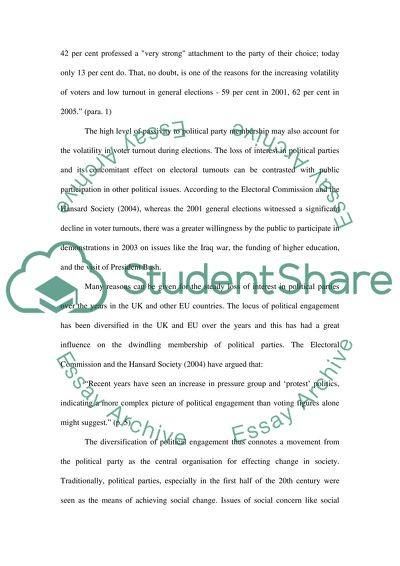Cite this document
(“Political Parties Essay Example | Topics and Well Written Essays - 2000 words”, n.d.)
Retrieved from https://studentshare.org/politics/1521542-political-parties
Retrieved from https://studentshare.org/politics/1521542-political-parties
(Political Parties Essay Example | Topics and Well Written Essays - 2000 Words)
https://studentshare.org/politics/1521542-political-parties.
https://studentshare.org/politics/1521542-political-parties.
“Political Parties Essay Example | Topics and Well Written Essays - 2000 Words”, n.d. https://studentshare.org/politics/1521542-political-parties.


